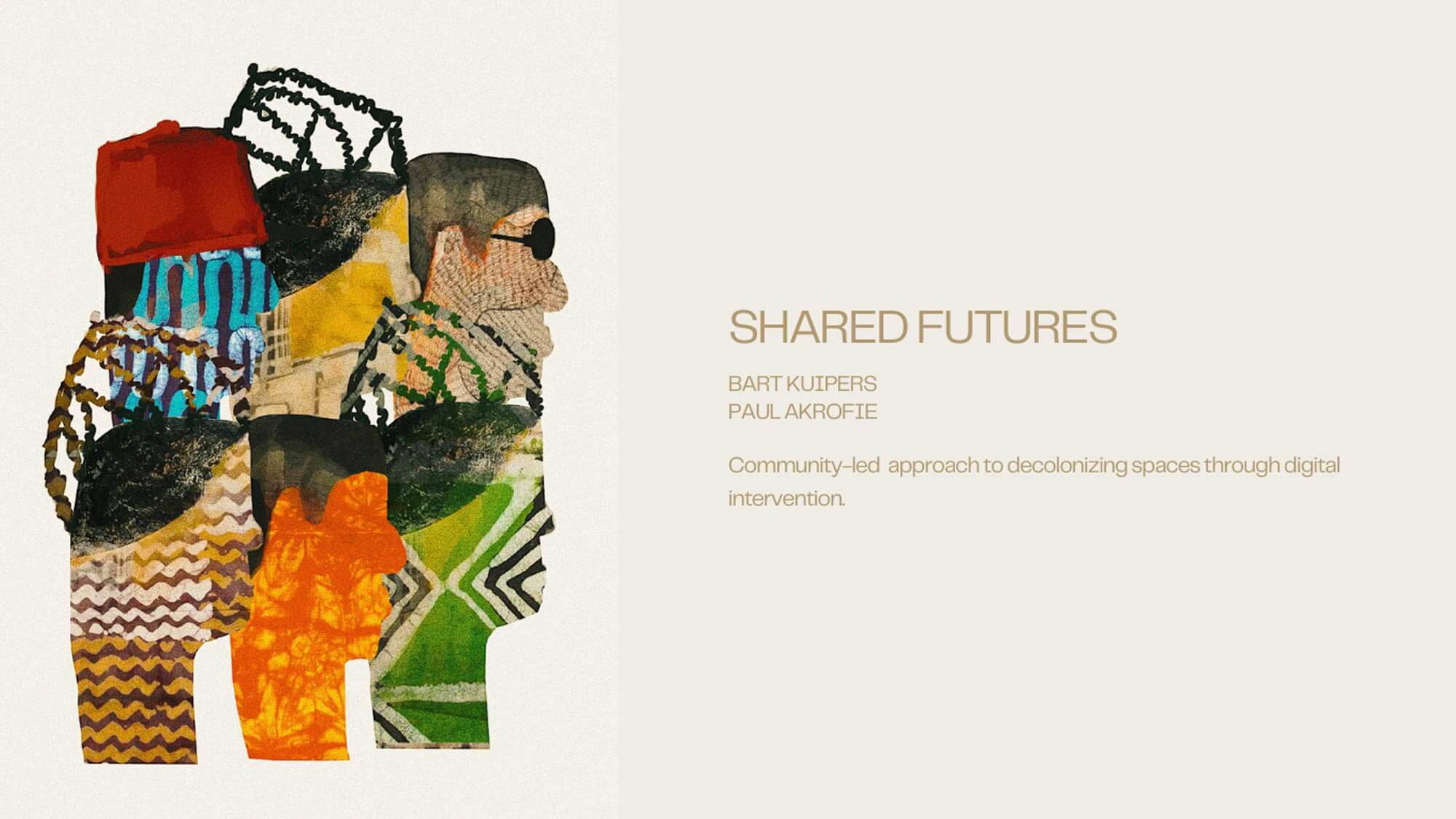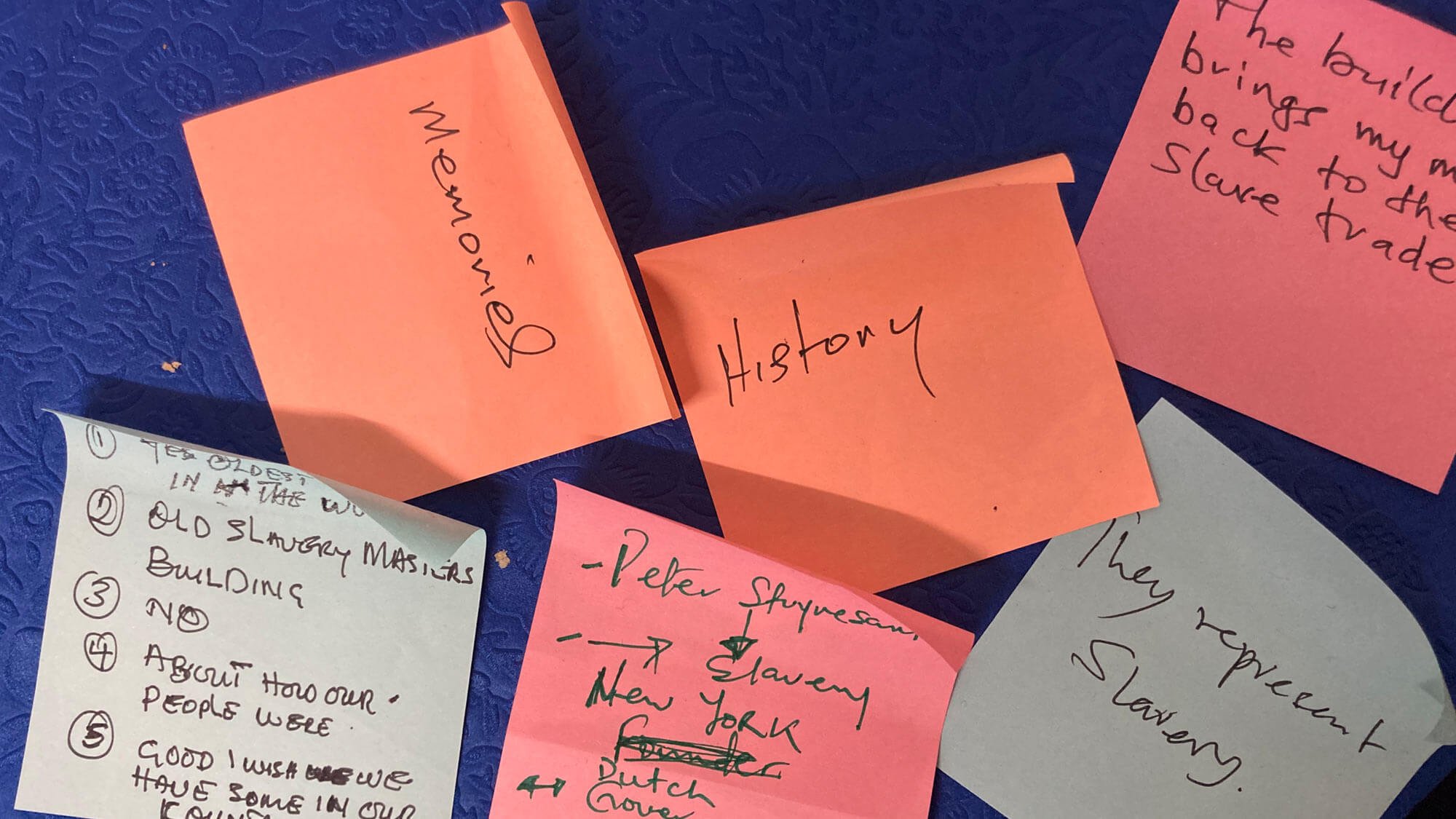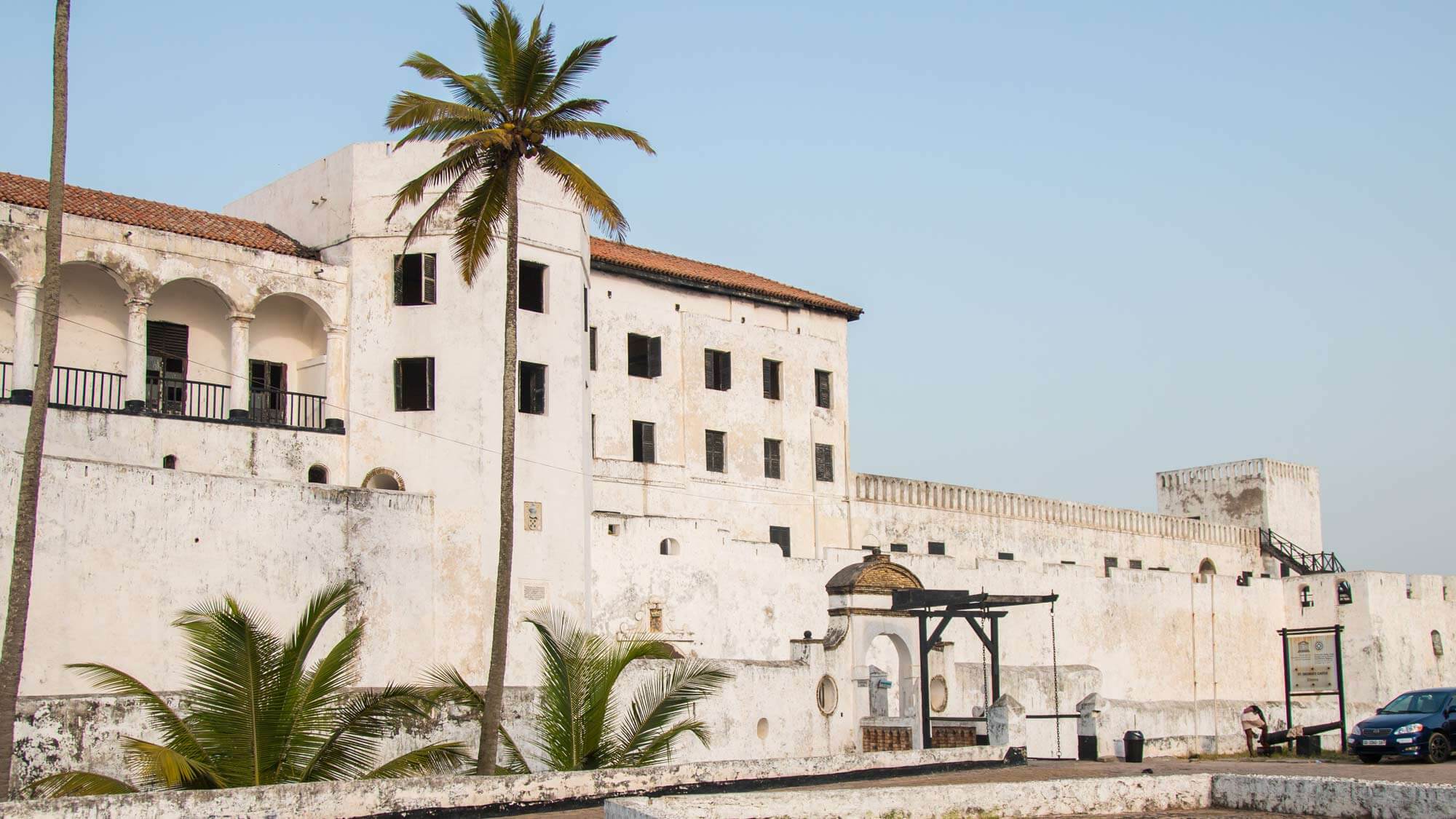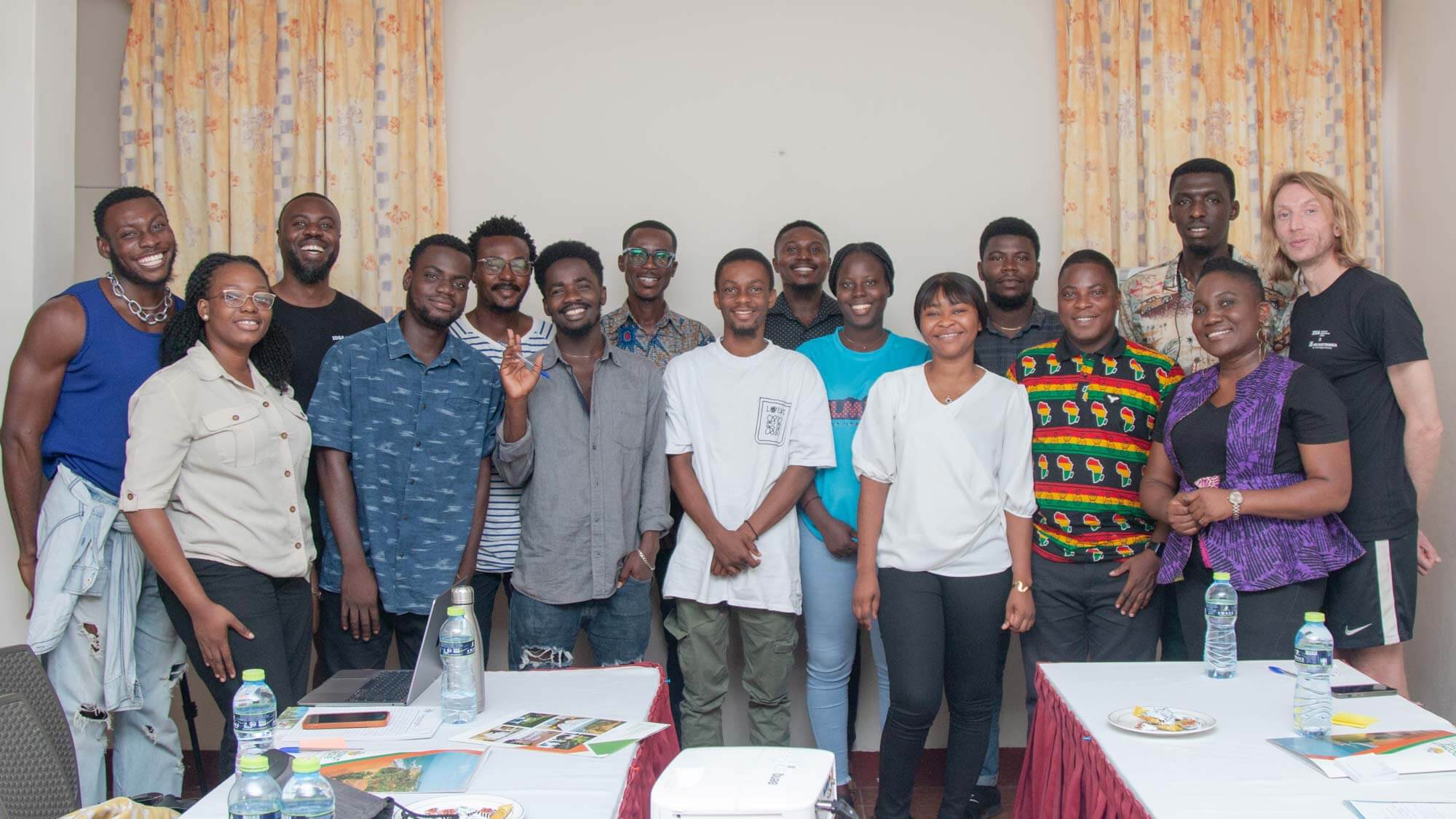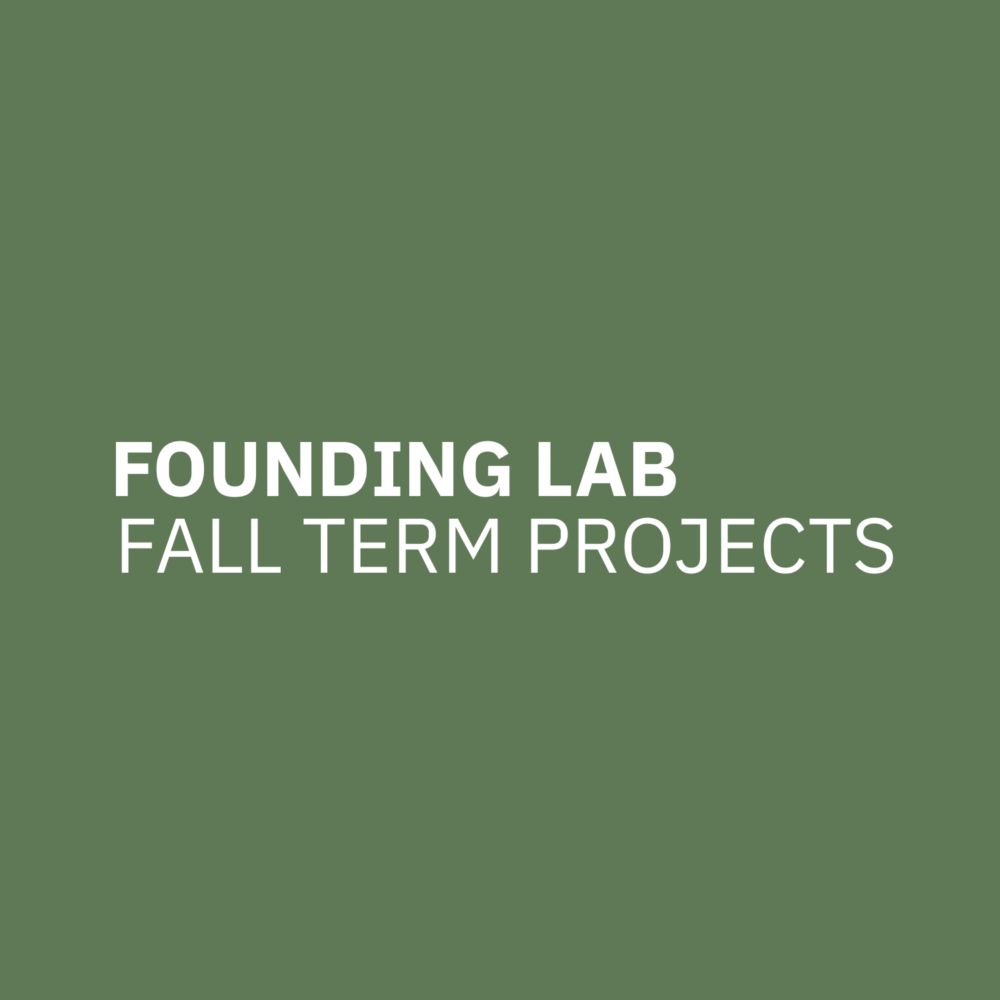
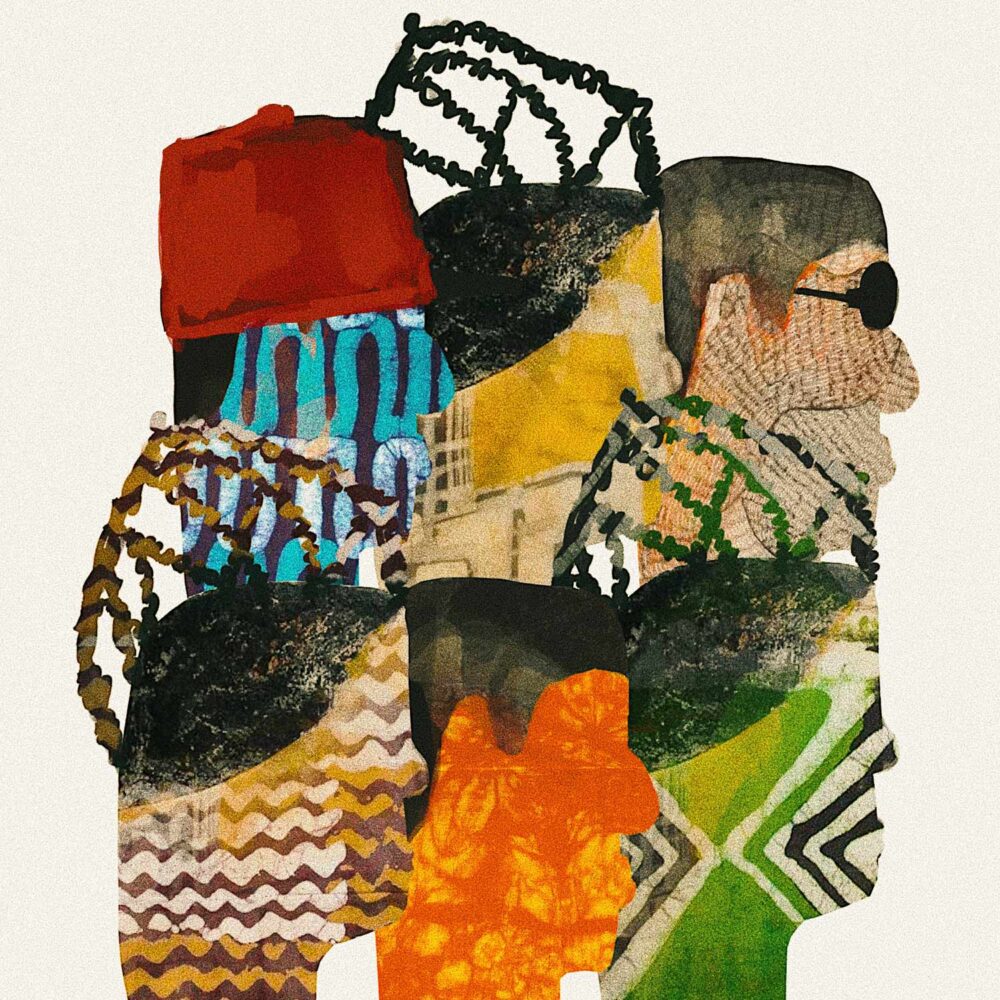
Shared Futures
by
Bart Kuipers & Paul Akrofie
Concept
In 1637 the Dutch West India Company (WIC) conquered Elmina Castle in Ghana, starting an occupation that lasted for over two centuries. Resources were extracted and many Ghanaians were forced into slavery and taken on WIC ships never to return.
Cultural heritage sites stand as silent witnesses to these atrocities, yet they remain in many cases at odds with the communities they impacted and forced themselves upon. With Shared Futures we aim to collectively reclaim these spaces using community-led XR interventions in order to empower local communities in Elmina and Amsterdam.
The first intervention we created is an augmented reality(AR) experience where we layered the poem “Thinking of Elmina”, that was co-authored with the local community in Elmina together with Accra based poet Emma Ofosua Donkor and the researchers, on the walls of Elmina Castle. For the installation, the text has been printed on perspex sheets and layered onto a video projection of members of the community of Elmina in front of the castle as their feelings are voiced through Emma’s recorded spoken word performance of the text.
To come to this result we went into the local communities in Elmina and Amsterdam to conduct workshops in which we aimed to achieve three things: firstly, we attempted to collectively define what decolonization and reclamation means; secondly, we wrote texts together trying to capture what it feels like for locals to be confronted with Elmina Castle and the former headquarters of the Dutch West India Company – still a prominent building on Amsterdam’s canals – that formed the basis for the co-authored poetry; thirdly, we collectively identified key points of other actions necessary to achieve reclamation.
The results of this examination shed light upon the current state of thought in the communities. The key take away in Elmina was that the castle does not serve the local community in any way. The vast majority of the people have never been inside and not even the revenue generated from the castle benefits them, as it is collected by the national government in Accra that does not re-invested it in Elmina. As such, the town is underdeveloped, with high rates of unemployment.
In Amsterdam the debate largely centered around the collective awareness of the history of the sites and what they represent. In many Dutch-Ghanaians living in Amsterdam Zuid-Oost the confrontation with the West India House instills negative emotions that lead to a similar disconnection as in Elmina. A first step in reclamation would be to increase the awareness and as such to come to an acknowledgement of what happened.
Even though Shared Futures helps to raise awareness, there is a long way to go to truly reclaim cultural heritage sites for the communities that were impacted by them. Future initiatives should focus on educational programs for youth in both countries, actions to repurpose Elmina Castle and ways to have the site benefit locals, and the strengthening of the connection between the communities in both countries.
Website: https://shared-futures.net
Process Reflection
The community-led nature of Shared Futures proved both to be its strength and the cause for its complexity. It demanded us to go into the local communities in two countries, on two different continents, and collaborate with a wide range of people across many different disciplines, which made putting it together challenging yet extremely rewarding.
As we progressed the scope of the project slowly dawned on us and at first complicated finding a focal point, but the decision to approach the project as a project of co-creation with local communities with a research component gave us a solid framework to work within. From there we sought collaborations with organizations and individuals in Ghana and The Netherlands that could help us with our research in Elmina and Amsterdam.
In Elmina, we worked together with NadèLi, a non-profit organization that supports emerging Ghanaian creatives, that helped connect us to organizations in Elmina, such as Brand Elmina, an idealistic traveling organization that concerns itself with putting Elmina on the map and improving chances for the local community. Together we worked on shaping a program for the workshop that would bring out different perspectives on Elmina Castle, stimulate participants to reflect on its role throughout history and today, and enable us to collectively find concrete action points to improve the relationship between the town and the site managed by UNESCO. For the workshop, we were joined by Accra-based poet and spoken word artist Emma Ofosua Donkor who helped us lead the co-creation part of the workshop.
In Amsterdam seeking partners in the short term with the limited budget we had at our disposal proved challenging. Many smaller and larger NGOs were very interested in the project but were unable to support it on such short notice. Eventually, we found fantastic partners in Recogin, an umbrella for Ghanaian organizations and clubs in The Netherlands, and the Ghana Diaspora Development Network, a trade company for Ghanaian diaspora. With them, we centered the workshop around bringing out perspectives, ideas, and reflections on colonial heritage sites in Amsterdam, what they represent, and what role they play in the lives of the Ghanaian diaspora living in Amsterdam Zuid-Oost.
After collecting these perspectives and reflections, we started co-creating the poetry we would use to layer on the colonial heritage sites in Elmina and Amsterdam in order to make a first (symbolic) step towards reclamation. Together with Emma, we wrote in English, Dutch, and Twi, to symbolize the unity and possible shared futures for our countries. We had help from a befriended graphic designer to set the text to the perspex sheets we had printed in Linz. The AR platform that existed in a proof of concept form was expanded and the poetry was uploaded.
What stood out in our research was the disconnection between the local communities in Elmina and Amsterdam and the colonial heritage sites that had gravely impacted them and their ancestors and the discomfort and agony that brought to them. A key moment in our research process was an interview we had in preparation for the workshop in Elmina with Michael Kunka, the director of Brand Elmina, who told us that 90 percent of the people of his community had never visited Elmina Castle and most of them didn’t know about its history or what the site represented. It changed our perspectives completely, as in our hypothesis we had always assumed that knowledge to be there. At this point, we realized both that we had a long way to go to learn about the relationship between the sites and the communities and the significance of having these conversations in the light of raising awareness and asking for attention for this part of the history.
